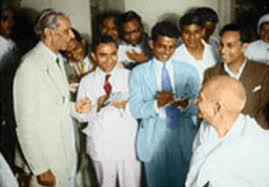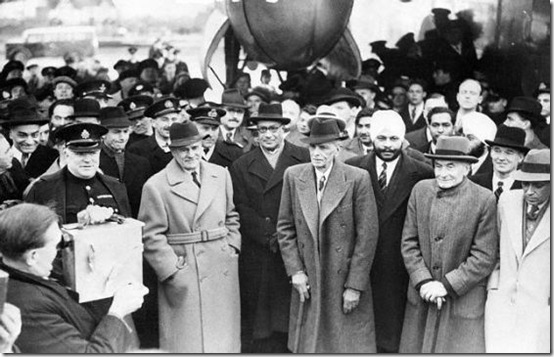
Quaid-e-Azam, Mohammad Ali Jinnah’s achievement as the founder of Pakistan has dominated his reputation in a public life spanning 42 years. But his multidimensional personality led him to play several roles with distinction: one of the brightest legal luminaries India, an ambassador of Hindu-Muslim unity, a distinguished parliamentarian and constitutionalist, an indefatigable freedom-fighter, a dynamic Muslim leader, a political strategist and, of course, one of the great nation-builders of modern times.
Little wonder then that so much less has been written about his personal life which is interesting in its own right. His taste and sense of style made him one of the most well-dressed and sophisticated men in the world.
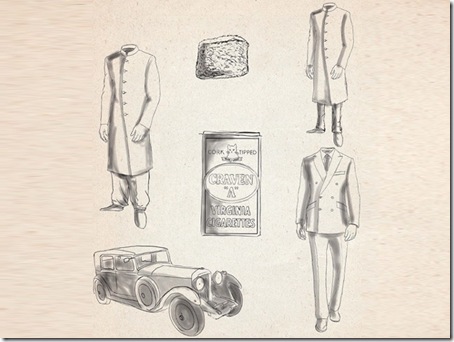
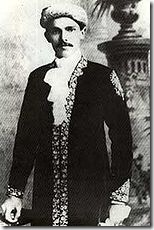 The youngest Indian to graduate from Lincoln’s Inn, Jinnah became the first Muslim barrister in Bombay after returning to India from England in 1896. Unlike, Sir Syed Ahmad Khan, he secured himself financially and his lifestyle resembled that of an upper-class English professional.
The youngest Indian to graduate from Lincoln’s Inn, Jinnah became the first Muslim barrister in Bombay after returning to India from England in 1896. Unlike, Sir Syed Ahmad Khan, he secured himself financially and his lifestyle resembled that of an upper-class English professional.Jinnah had a fine taste for homes and extravagant décor and owned three houses: one in Hampstead, one of the posh areas of London, one on Malabar hill in Bombay and another at Aurangzeb road in New Delhi, designed by Edwin Lutyens, a renowned architect at the time.
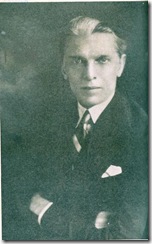 When at his London home, he would hire an English staff to serve him including an English chauffer, who drove his Bentley. He always had two cooks, an Indian and an Irish. Jinnah’s favorite food was curry and rice. He always smoked his favorite Craven A cigarettes, one of the finest and the most expensive, at the time. His wealth gave him independence, which in turn, enabled him to speak his mind.
When at his London home, he would hire an English staff to serve him including an English chauffer, who drove his Bentley. He always had two cooks, an Indian and an Irish. Jinnah’s favorite food was curry and rice. He always smoked his favorite Craven A cigarettes, one of the finest and the most expensive, at the time. His wealth gave him independence, which in turn, enabled him to speak his mind.Clearly a very attractive man, he prided himself for his appearance. He was said to never wear the same silk tie again and had nearly 200 tailored suits in his wardrobe. His clothes made him one of the best-dressed men in the world, rivaled in India, perhaps only by Motilal Nehru. Jinnah’s daughter Dina called her father a “dandy”. His tall, lean physique and his liking for good clothes enabled him to wear clothes with flair, confidence and conviction.
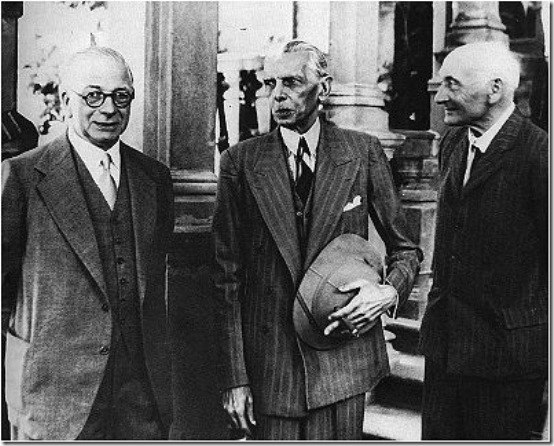
With his monocle, clipped accent and Saville Row suit, Jinnah was the perfect upper class gentleman of his day. His mimicry of the upper class Englishmen in India was so accurate, it made the English uncomfortable. Wearing Western clothes among the Indian elite at that time was not unusual; however what made Jinnah unusual was the authenticity and exaggeration of his aristocratic appearance, which consistently transitioned with time.
 By the late 1930’s, Jinnah had adopted the local dress, although he did not entirely give up his Western clothes. For a headdress he opted for a karakuli cap, instead of a fez or turban, since the latter reflected the tradition followed by an older generation. Jinnah had an instinct for choosing the right clothes to make a cultural and a political statement. With this shift in his attire, he created a modern Muslim identity.
By the late 1930’s, Jinnah had adopted the local dress, although he did not entirely give up his Western clothes. For a headdress he opted for a karakuli cap, instead of a fez or turban, since the latter reflected the tradition followed by an older generation. Jinnah had an instinct for choosing the right clothes to make a cultural and a political statement. With this shift in his attire, he created a modern Muslim identity.When Pakistan was created, he stopped wearing the chooridar or tight pyjamas worn in UP and Delhi, and adopted the loose-fitting shalwar. He still wore his western clothes with a karakuli, as is depicted in many of his official pictures after the 1940s. His clothes suggested a Muslim identity, that was proud of its past and yet at ease with the cataclysmic changes in modern Indian society.
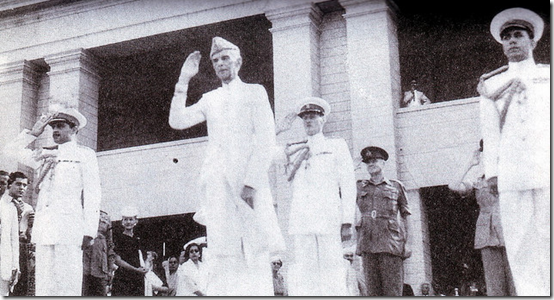
Jinnah was adored by women for his distinguished yet classic fashion sense. After meeting him at the viceroy’s dinner in Simla, a British general’s wife wrote to her mother in England: “After dinner, I had Mr Jinnah to talk to. He has a great personality. He talks the most beautiful English. He models his clothes and his manners on Du Maurier, the actor, and his English on Burke’s speeches. I have always wanted to meet him and now I had my wish.”
His ‘beautiful English’ could be attributed to the keen interest he took during his adolescent years in reading Shakespeare and being an actor. His sister frequently recounted his love for reading Shakespeare to the family after dinner at his residence in Karachi. He was also offered to work with a theatrical company as a student in London in 1893, but refused to join since he always fancied being a barrister and for his inclination towards politics.
Source: Sonia Malik, The Express Tribune, November 14th, 2010. ( with some addition)
